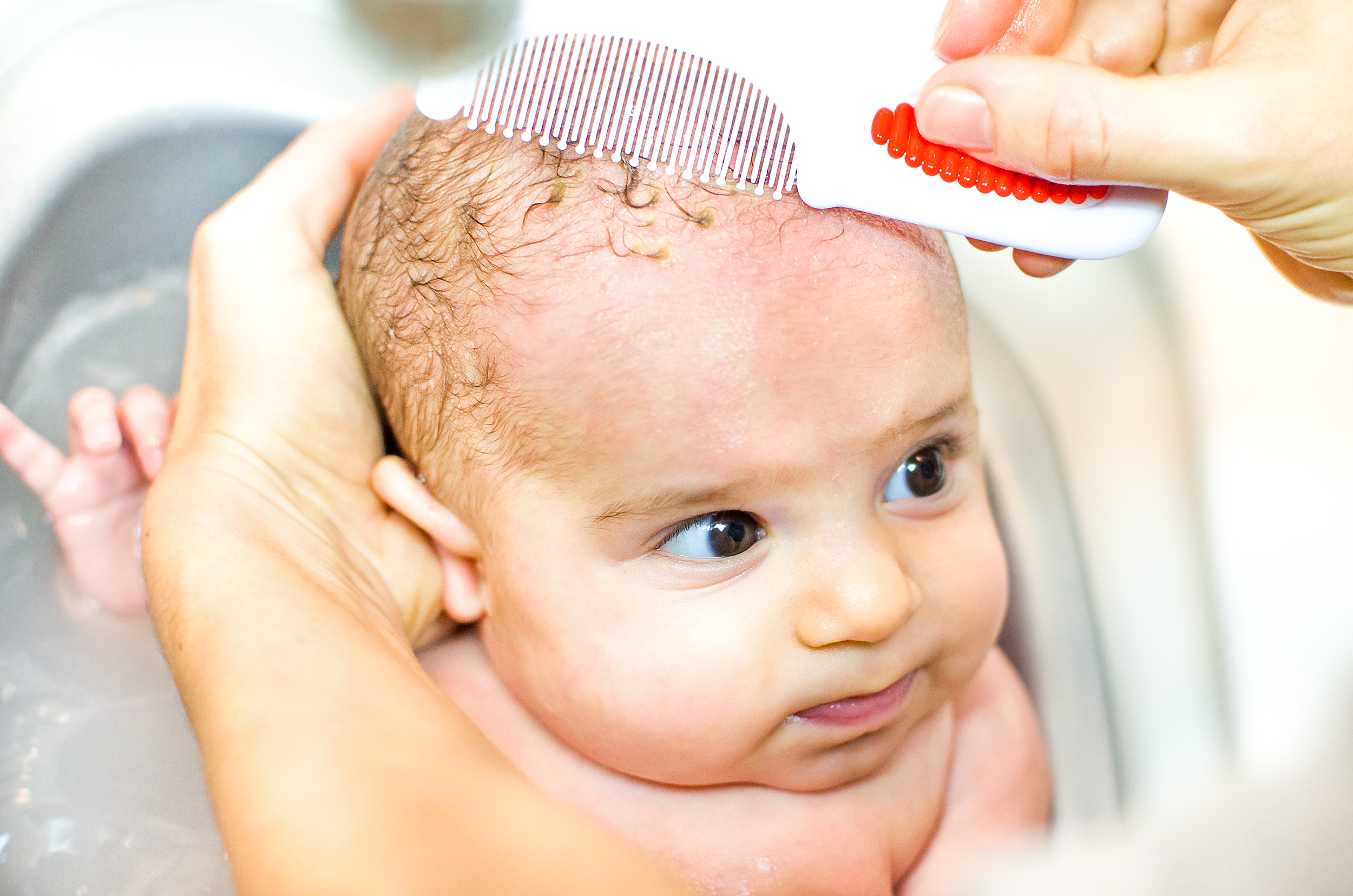-
Promoting Positive Body Image in Children: Encouraging Self-Love and Acceptance

Father with children.
The Benefits of Positive Body Image
Your body image- how you think and feel about your body, is important to your overall wellbeing. Your body image may not have anything to do with your actual appearance, but when you accept, appreciate, and respect your body, you develop better self-esteem and self-acceptance. People with a good body image tend to take a balanced approach to diet and physical activity, while those with a negative body image are likely to experience negative effect on their physical, psychological, social health. Disordered eating, compulsive exercise, depression, anxiety, and low self-esteem are all results of negative body image. Additionally, having a negative body image can cause a person to feel self-conscious or distressed, which can lead to avoidance of social interactions and disengagement from daily activities. This causes feelings of loneliness, isolation, and a lack of acceptance from others, further damaging self-esteem.
Helping Your Child With Body Image
Fortunately, you can help your child develop a positive body image and strong self-esteem.
- Start by being a good role model. Be mindful of the things you say, and steer clear of negative talk about your body or the bodies of others. Work on your own relationship with your body, and encourage your child to talk about his or her feelings regarding body image. Talk about societal messages and images that promote unrealistic body ideals, and encourage your child to challenge narrow idea of attractiveness.
- Encourage healthy habits. Proper nutrition and regular exercise are both important for a healthy body. Don’t encourage your child to diet, and never label foods as good or bad. Rather, work with your child on eating a healthy variety of nutritious foods. Teach children to reach for nutritious snacks, and listen to their bodies’ cues on when to eat and when to stop eating. When it comes to exercise, work to make your family an active one, encouraging physical activity as a habit, rather than a chore. Engage in activities that are fun and physical, and talk about how amazing our bodies are and what they can do.
- Help your child build confidence and develop self-acceptance. Encourage self-expression, help your kids develop problem solving skills, and help them build confidence in their own abilities by showing your confidence. Teach healthy coping strategies, and encourage your children to assert themselves, learning to say no when they need to and not allowing others to mistreat them. Give your children age-appropriate household tasks, to help them feel they play an important role in the family.
- Talk about body image, at home and in the community. Avoid making comments about other people’s physical appearance, instead mentioning characteristics like persistence, kindness, or optimism. Create an environment where there is no teasing about looks, and no hurtful comments. Work with other parents and people at your children’s school and other groups, to create a positive environment that encourages positive body image and self-esteem while discouraging bullying and negative peer pressure.
- Monitor media consumption. Our children are exposed to so much negative information online and through movies and television. Pay attention to what your children are consuming, and help them develop a critical eye towards media messages.
- Focus on health, well-being, and inner qualities. Talk about bodies in terms of what they can do, and how to keep them healthy. Discuss how a healthy lifestyle improves overall wellbeing, rather than how it impacts appearance. Celebrate your child’s creativity, resilience, and kindness, fostering an environment in which character traits are valued above external appearance.
- Prioritize gratitude and self-care. Being grateful helps children develop a positive mindset, and that includes how they feel about themselves. Teach them to engage in self-care activities like hobbies, mindfulness, relaxation techniques, and just taking breaks.
- Celebrate differences. Teach your children to appreciate differences in abilities, appearance, and backgrounds, valuing diversity as something that enriches our lives. Foster an environment of support and inclusivity, and encourage them to stand up against body shaming and bullying. When we teach our children to treat others with respect and kindness, we are helping to build a healthier world.
Helping Healthy Families Grow
At the Center for Vasectomy Reversal, we love helping people grow their families. We pride ourselves on helping men improve their fertility through uncompromising, concierge-level patient care. Under the direction of Dr. Joshua Green, our team provides state-of-the-art treatment for men who need a reversal of their vasectomy or have other fertility concerns. To learn more, contact us through our website or call 941-894-6428.
-
How to Balance Child Care while Working from Home

Dad working from home while watching child.
The Delicate Work-Life Balance of Work from Home Parents
It’s a conundrum faced by many work from home parents. One of the reasons many of us work from home is to be more present for our children, yet children tend to get in the way of work. How do we strike a balance between providing financially for our families, yet being there for our children when they need us. How do we maintain productivity, while taking care of our children? We have some helpful tips on balancing child care while working from home.
Don’t Believe the Influencers
Working from home, either completely or partially, is the new normal, with 58 percent of Americans reporting that they can work from home at least once a week. It’s inevitable that you will come across work from home parents on Instagram, in spotlessly clean homes, with perfectly behaved children and beautifully organized offices. Don’t believe the hype. If you are struggling to keep your head above water while working from home with children, you are certainly not alone. Being a work from home parent can be truly rewarding, but it’s not easy, and it does require creativity, flexibility, and careful planning.
Have a Strategy
Actually, it’s better if you have a few. Be realistic with your expectations, and what’s going to happen when your children are home. Will they stay quiet when you’re in a meeting? Even the most well-behaved kids are, well, kids. They’re going to have wants, needs, and crises that don’t always fit neatly into your work schedule. Here are some strategies you may find effective:
- Work during naps. The great thing about babies and toddlers is that they sleep a lot. Some even keep a nap schedule until kindergarten! Use this time wisely, focusing on your most intensive tasks, or scheduling meetings during nap time.
- Plan activities they can do alone. Activity boxes are a godsend for a work from home parent, and you can purchase them or create your own, using different themes to keep it interesting. Have arts and crafts, games, books, and building toys at the ready, so that you can get your children settled doing something that will occupy their minds and free up your time.
- Shift your mindset on screen time. As parents, most of us try to keep screentime to a minimum. If you had really strict standards before you started working from home, you might want to rethink that attitude. There’s nothing quite like an animated movie or a game on a tablet to hold a child’s attention, so that you can put your attention on something else. Don’t overdo the screentime, but keep it in reserve for when you desperately need some peace and quiet.
- Build your schedule around theirs. Maybe this means doing shift work, planning your schedule around when the kids are sleeping or at school. It could also mean planning to work not only during school hours, but in the waiting room at doctor’s appointments, on the soccer field, at the dance studio, or while your child has a music lesson. The secret to successfully working from home is to remain creative and flexible.
- Let some things go. If your kids load the dishwasher and put away their laundry while you’re working, you can be sure it’s not going to be done perfectly. That’s ok! Ease up on your expectations of a clean house, and on the demands you put on yourself, letting others take over some tasks, even if they don’t do them as well as you would. Take a look at your extracurricular schedule, too. When parents work from home, people often put extra demands on them to volunteer or take on little tasks. Learn how to say no, and that being a good parent doesn’t necessarily mean being at the school every time a volunteer opportunity arises.
- Be present. Try to limit the amount of time you spend multi-tasking. If you’re with your kids, be with your kids. If you’re working, make it clear that you’re working. Focus on what you are doing, be present in the moment, and you’ll find that you feel a lot less stressed and pulled in different directions.
Get Some Help
There’s no rule that says work from home parents have to go it alone. If your children are preschool age, consider a mother’s morning out program, to give you a day or two of dedicated work time each week. You might also be able to find a neighborhood tween who’d like to act as “mother’s helper,” playing with your children after school for a reasonable fee. If your children are a little older, arrange playdates. Ideally, look for other work at home parents who are interested in working out some sort of cooperative routine, swapping childcare responsibility on a regular basis.
Set Boundaries
With babies, there’s not much you can do. With older kids, though, you can teach them to leave you alone while you’re working. This requires some patience on your part and practice on theirs, and you also need to be careful not to be working so much that they feel they never have your attention. Work out a signal that means “do not disturb,” but also let them know when it’s ok for them to come and hang out with you while you work.
Take Breaks
When you work from home, it’s tempting to work all the time, but it’s not good for your family life or your mental and physical health. Set hours for work, and be firm about the hours you’re not working. Occasionally, take a mental health day, to relax with your family or practice some self-care.
Center for Vasectomy Loves Helping Parents
We hope these tips helped you get a handle on how to find work-life balance while you’re working from home. At the Center for Vasectomy Reversal, we love helping people grow their families. We pride ourselves on helping men improve their fertility through uncompromising, concierge-level patient care. Under the direction of Dr. Joshua Green, our team provides state-of-the-art treatment for men who need a reversal of their vasectomy or have other fertility concerns. To learn more, contact us through our website or call 941-894-6428.
-
Traveling with a Babies and Young Children

New parents traveling with toddler.
Can you travel with a baby?
Before you had a baby, travel was easy! You could pack up and go any time you had a whim and some time off, with very little hassle. Now that you have a new little one, though, the idea of packing up all the baby gear and heading off on a trip feels daunting. Can you even travel with a baby? How old does a baby need to be before it’s safe to travel? You probably have a million questions, so we’ve got some tips to help make traveling with a baby easier.
When can you go?
Before you make plans to jet off to Grandma’s with your newborn, slow down and talk to your pediatrician. Little ones are still developing their immune systems, so it’s important to get guidance from a healthcare professional before planning a trip. When you do travel with your baby, make sure you wash your hands frequently, use hand sanitizer, and avoid visibly ill travelers, to help keep your little one safe and healthy.
Planning Ahead
In addition to clearing the trip with your healthcare provider, make sure your child’s immunizations are up to date and that you pack all medication and important documents you will need on the trip. Whether your child is an infant, and older baby, or toddler, it’s better to have more than you need than to forget something. While you’re planning your trip, research your accommodations and amenities, making sure you will have everything you need for a successful stay with your little one. Be prepared for travel-related maladies like colds, sore throats, diarrhea, and car sickness, as well as things like mosquito bites and bedbugs. Take preventive measures to avoid these issues, and have remedies on hand just in case. Perhaps most importantly when planning a trip with a child, allow plenty of extra time for packing the car, getting to your destination or to the airport, going through security, checking into your hotel, or eating at a restaurant. When you have plenty of time and you’re well-prepared, the trip will go more smoothly.
What to Pack
Really, when packing to travel with a baby or small child, more is more. Make sure you bring everything your baby will need, from a traveling crib to a stroller to bottles, bibs, diapers, wipes, pacifiers, and plenty of clothes. Bring favorite toys and blankets, pack books, craft supplies and other activities, and bring bedding from home to help your child feel more at ease. Check the weather for your destination and pack accordingly, being prepared for the weather to take an unexpected turn.
Where to Go
Plan trips that are age appropriate and will be interesting to your child. When visiting the grandparents, take time to visit playgrounds. When planning a vacation, consider a beach or some other location with plenty to do and explore outside. Make sure, wherever you go, that you’re keeping a close eye on toddlers and small children who can easily get into dangerous situations, particularly around water.
What to Keep on Hand
You’ve packed all the essentials, but some things need to be easily accessible while you’re traveling. A first aid kit, plenty of water, disposable diapers, and snacks should all be on the list when you’re traveling with a small child. Be prepared to provide entertainment for an older baby or child, whether that means singing songs, playing games, or reading a book. Pro tip: if you have older little ones, audiobooks are a wonderful way to occupy the whole family on a long road trip.
Consistency is Key
The younger the child, the more important it is to keep feeding and sleep schedules consistent when you travel. If you are going to cross time zones during your trip, try to gradually adjust the schedule to the new time zone two or three days before you leave for your trip. Having a consistent routine will help your child feel more secure, and will make for fewer meltdowns.
Anticipate Challenges
Your child may experience some big feelings when the routine changes. Sleeping in a strange bed, being away from home, and missing the normal routine can be hard for kids to manage. Stress, confusion, and fear can all come out in the form of temper tantrums, crying, or otherwise acting out. Some of this can be alleviated by keeping a regular sleeping and eating schedule and bringing familiar items from home. It’s important, though, to allow your child to make some decisions, and to respect their boundaries, avoiding forcing them into any activities or interactions they strongly resist.
Be Patient
Sometimes, you’re going to have to move more slowly than you’d like on a trip with a baby. Children need breaks, naps, and down time, and it’s not easy for them to sit for long stretches in a car or on a plane. Plan for this, building in breaks, helping them “get their wiggles out”, and giving them extra hugs, snuggles, and overall patience.
Accept Assistance
Don’t be shy about asking the flight attendant if there is something special available for a fussy child, like a pack of crayons or a picture book. If you need something from the hotel, ask. If you’re staying with family, don’t try to care for your baby all by yourself, but accept help from well-meaning family members.
Help With Starting a Family
At the Center for Vasectomy Reversal, we love helping people grow their families. We pride ourselves on helping men improve their fertility through uncompromising, concierge-level patient care. Under the direction of Dr. Joshua Green, our team provides state-of-the-art treatment for men who need a reversal of their vasectomy or have other fertility concerns. To learn more, contact us through our website or call 941-894-6428.
-
New Parent Hacks and Tricks

New parents using helpful parenting tips.
Embracing New Parenting
Do you have a new baby? Congratulations! New babies are amazing, and even though people told you before you became a parent, you probably were unprepared for how much you’d love this little person. Unfortunately, even though people probably also told you how overwhelming parenthood can be, you might have been fully prepared for that, either. Being a new parent is a wonderful gift, but it’s also hard, and if you are feeling frustrated, you’re not alone. Don’t worry! We have some hacks and tricks from experienced parents to help you navigate this brand new experience with your brand new little person.
Care and Keeping of Baby
- Bathing your baby in the kitchen sink means you don’t have to bend or kneel to reach the bathtub.
- Cradle cap can be managed by moisturizing it with a little bit of coconut oil and then using a baby comb to gently remove it.
- If you don’t have baby nail scissors, nose-hair scissors with rounded tips are the perfect substitute. Whatever you do, don’t bite your baby’s nails! Another nail tip: cut your baby’s fingernails when your little one is sleeping or feeding, to make it easier.
- When you need to give your baby medicine, stick the medicine dropper in a bottle nipple and administer the dose while your baby is happily sucking the nipple.
- Layer few covers on your changing pad, so that you can easily change to a clean one. Alternately, skip the covers and buy a simple changing pad you can wipe clean.
- Fold your newborn’s diaper waistband down to keep it away from the umbilical cord area while it’s healing.
- Swipe a wet wipe under your baby boy’s belly button immediately before a diaper change. That way, he’ll get a cold sensation that causes him to pee the diaper before taking off the diaper allows cool air to prompt the same reaction and cause him to pee on you!
- Olive or coconut oil on a newborn’s bottom will help make cleaning sticky meconium easier.
- Before you take off your baby’s diaper, put a fresh diaper underneath it, just in case.
- Rather than a diaper pail, you can use a regular trash can, keeping plastic bags in an empty wipes container so that you can throw away poopy diapers conveniently.
- When the inevitable blowout happens, pull the onesie down instead of over baby’s head. That’s why onesies have those little folds on the side of the neck hole- to widen the neck area and make them easier to pull down.
- Make foaming baby wash with equal parts baby wash and water in an empty bottle of foaming hand soap.
- Start tummy time with your baby on your chest or belly, so they get the benefits while also feeling close to you.
Sleepy Time
- Instead of onesies or PJs, use newborn nightgowns in the early days.
- When choosing sleepers, pick the ones that zip instead of snapping. All those little snaps never seem to line up correctly when you’re trying to change your wiggly baby in a hurry.
- Make swaddling easy with a swaddle that has Velcro.
- Get your baby into a good day and night routine. Interact with your little one during the day, making it easier for everyone to sleep at night.
- Use a white noise machine so that your baby won’t wake up with every noise. You’ll be glad you did when your child is a sound sleeper.
- Dream feed your baby, waking your infant for a feeding right before you go to bed for the night.
Hushing the Fuss
- Hold on to the exercise ball you got for labor so you can bounce your baby during fussy times.
- If your baby fusses at bath time, try swaddle bathing, wrapping the baby in a tight blanket and carefully unwrapping one limb at a time to wash, rinse, and rewrap.
- Learn the 5 S’s. Swaddling, shushing, swinging, sucking, and side laying are the perfect techniques for calming a fussy baby.
- Gripe water is a lifesaver and the fastest way to ease a baby’s gas to quiet a fussy tummy.
Out and About
- Keep your hands free by using a backpack instead of a diaper bag. This is especially helpful if you’re wearing your baby.
- Pad your car seat handle with a cut-up piece of pool noodle to make the heavy car seat easier to carry in the crook of your arm.
- Bring a change of clothes for yourself as well as your baby, in case of a spit up, diaper, or breastmilk incident.
- Use a baby hammock to hold your baby in a grocery cart so that you can shop and your baby can be comfortable.
Making Your Life Easier
- Stash wipes all over your house and in your car, because baby messes can happen anywhere.
- Create a portable diaper changing station to keep near you so you don’t have to keep running back to the changing table. This is particularly useful if you live in a multi-level home.
- Breastfeed while lying down so that you can get some rest while the baby eats.
- Grab a water before you breastfeed, to keep from getting dehydrated.
- Sleep when the baby sleeps is not a cliché. Even if you feel like you need to get things done, it’s better to get some rest whenever you can when you have a new baby.
- Learn to wear your baby. This can promote bonding while also leaving your hands free so you can get things done while your baby is awake.
- Keep a pack and play nearby. Set up your pack n play in a room you use frequently, so that you can set your baby down safely when you need to get something done.
- Take help that is offered to you. This is perhaps the best tip we can offer to new parents! When people offer help, let them do something for you, whether it’s bringing you dinner, watching the baby long enough for you to take a shower, running an errand for you, or helping you with housework. Other parents understand how hard it can be when you have a new baby, and their offers to help are sincere, so don’t wear yourself out trying to do it all on your own.
Center for Vasectomy Loves Helping Parents
We hope these tips helped you get a handle on how to manage your newly growing family. At the Center for Vasectomy Reversal, we love helping people grow their families. We pride ourselves on helping men improve their fertility through uncompromising, concierge-level patient care. Under the direction of Dr. Joshua Green, our team provides state-of-the-art treatment for men who need a reversal of their vasectomy or have other fertility concerns. To learn more, contact us through our website or call 941-894-6428.
-
What is Cradle Cap?

What is on your baby’s scalp?
It happens to most new parents, and it can be disconcerting. You’re snuggling your sweet new baby, inhaling that delicious baby smell, when you notice something a bit, well, icky. Red scaly or crusty yellow patches disrupt the sweet softness of your infant’s scalp, blotch your baby’s beautiful face, or appear in the diaper area. What is that? It’s cradle cap, and here’s what you need to know about it.
Cradle Cap is a Common Condition
Cradle cap is scientifically known as seborrheic dermatitis, and it can develop when a baby is between two and 12 months old. Generally, it starts on the scalp, as red or yellow patches that are greasy, scaly, or flaky, but it can also start on the face or in the diaper area, armpits, or any other place where the skin folds and creases. In creases and folds like the neck or behind the ears, it appears red and moist. It may look uncomfortable, but it doesn’t typically bother infants. Unlike atopic dermatitis, it is not itchy.
Causes of Cradle Cap
No one really knows what causes cradle cap, but it’s probably more than one thing. Oil buildup in the oil glands and hair follicles, combined with yeast found on the skin, play roles in its development. It is also thought that hormones passed along from the mother to the child before birth can contribute to the formation of cradle cap. What is known is that it is not the result of poor hygiene, and it is not contagious. A doctor can diagnose cradle cap by looking at it, and it will generally get better whether it’s treated or not. However, you might want to treat it, just to get those scales off of your baby’s scalp.
Treating Cradle Cap
Sometimes, cradle cap can be prevented with daily hair washing. Wash your baby’s scalp with a mild, tear-free shampoo, and remove the scales with a soft brush or toothbrush. If the scales are too stubborn for gentle shampoo, try a bit of baby oil, mineral oil, or olive oil, allowing the oil to soak into the scales so that you can loosen them with a soft brush. Once you’ve done that shampoo as usual. Be careful not to use any shampoos with nut oil on a child under five years of age.
Does cradle cap require a doctor visit?
If the cradle cap won’t clear up with regular shampooing, you might want to ask your pediatrician for help. He or she might recommend a mild steroid cream or antifungal shampoo, or a cream for parts of the body other than the scalp. Don’t use any over-the-counter anti-seborrhea shampoos, steroids, or antifungal creams on your baby without asking your doctor first. In some cases, seborrheic dermatitis in skin folds or the diaper area can get infected. If you notice signs of infection, like warm, red skin or fluid draining, call the pediatrician. Usually, though, cradle cap and seborrheic dermatitis clear up by 12 months of age, but may come back during puberty as dandruff.
Healthy Babies Start with Healthy Parents
At the Center for Vasectomy Reversal, we love helping people grow their families. We pride ourselves on helping men improve their fertility through uncompromising, concierge-level patient care. Under the direction of Dr. Joshua Green, our team provides state-of-the-art treatment for men who need a reversal of their vasectomy or have other fertility concerns. To learn more, contact us through our website or call 941-894-6428. For more parenting tips, click on the link to our blogs!
-
How Long Should You Wait Between Pregnancies?

New parents discuss having more children.
How close together would you like to have your children? Is it better to have them close together, so that you can get through the diaper stage all at once, or to spread them out so the older ones can help with the younger ones? If you have waited to start a family, do you have time to have more than two children? How far apart you space your children is a subjective decision, of course, but medical science does have some guidelines to offer. Beyond that, there are pros and cons to consider, no matter which way you’re leaning.
According to the World Health Organization (WHO), women should wait between 18 and 24 months between pregnancies. However, recent research published in JAMA Internal Medicine, women only need to wait a year between a birth and another pregnancy. A smaller gap than that can increase risks to the mother and baby, and the new findings indicate that waiting 12 to 18 months is optimal. This is great news for women over 35, who might be concerned about having more children as their maternal age advances. It’s important to wait at least 12 months between pregnancies, though, because becoming pregnant sooner than that increases the risk of maternal mortality, no matter the age of the mother. The risk is lower still at 18 months, so weigh this carefully when spacing your children.
Getting pregnant too quickly in succession is also risky for the baby. It increases the odds of premature birth, low rate, and small gestational age, all of which increase the risk of long-term health problems. Closely spaced pregnancies also have a higher risk of placental abruption, which results in a higher risk of fetal mortality and stillbirth.
Aside from the health of mom and baby, there are several other factors that you should consider when determining how far apart to space your pregnancies.
- How much of a gap do you want to have between your children? There is something to be said for having children who go through similar stages at the same time. They can share toys and gear, are likely to play together nicely, and as mentioned earlier, you can get through the diaper stage more quickly. On the other hand, being able to spend time alone with your newborn while your older child is in preschool is helpful. Having a “big” sibling who can help out with minor tasks, like bringing you a burp cloth or a new pack of wipes, can also be a boon.
- Consider your living space. Is there enough space for your children to have separate rooms? Will your older child be using the crib when your little one arrives? Will your children need to share space? Think about how you will situate the kids, along with any challenges you’ll face in the near future, like a move, that could make having a baby any time soon inconvenient.
- Think about the expense of a new baby. One benefit to having kids close together is that they can share much of the gear, and your older one will likely have hand-me-downs to pass along to the new baby. Consider, however, the expense of things like diapers and childcare, and make sure that having another child won’t put your family into a financial disadvantage.
- How do you feel about having another baby? Are you ready? Talk to your spouse so that you’ll know you’re on the same page. Your mental health and your instincts are both important, so trust your gut on whether or not this is the right time to bring another little person into your family.
The bottom line, of course, is that planning the spacing of your family is intensely personal. At the Center for Vasectomy Reversal, we love helping people grow their families. We pride ourselves on helping men improve their fertility through uncompromising, concierge-level patient care. Under the direction of Dr. Joshua Green, our team provides state-of-the-art treatment for men who need a reversal of their vasectomy or have other fertility concerns. To learn more, contact us through our website or call 941-894-6428.
-
How to Avoid Spoiling Your Kids

Parents playing with child.
They come into the world so little and sweet, and before you know it, your babies are turning into toddlers. Until now, it’s been pretty easy to manage them, but suddenly, they’re little people with minds of their own. You love them, you’d do anything for them, but how do you avoid spoiling them? We’ve got some tips to help you raise kids who are happy, secure, and definitely not spoiled.
- Set boundaries and stick to them. Being consistent is one of the most important parts of being a parent. Make sure the rules are clear, and use discipline strategies that work for your child. Remember, discipline needn’t be punitive. Try positive disciplinary practices like redirection and positive reinforcement. Expect your children to push your boundaries, it’s a normal part of child development, but resist the urge to cave when they do. It’s important to stick to your limits, or you could end up with a child who second guesses you at every turn. Teach your children that the rules are the rules, no means no, and there are consequences for bad behavior.
- Assign chores from an early age. Give your little ones age-appropriate chores, like putting away toys, setting the table, and putting plastic dinnerware in the sink. This will encourage your child to think about the needs of others, as well as instilling a sense of responsibility. Make it a rule that chores are done before fun; research indicates that children whose parents are strict about chores are better able to cope with frustration.
- Encourage good manners. Please and thank you should be some of your child’s first words, and saying thank you should become something your child does reflexively, without prompting. Good table manners, too, help a child become someone people want to be around. Teach your child to share, take turns, and respect the feelings of others, and not to be a sore loser or call names. Be a good example by being polite to the people you encounter in daily life, and teach your children how to write thank you notes to people who do nice things for them or give them gifts.
- Allow your little one to experience disappointment. Disappointment is a part of life. While it’s tempting to try to protect your child from the negative aspects of life, overprotecting can result in a spoiled child. Whether it’s a canceled playdate or not getting something he or she wants when you’re at the store, learning to face disappointment at an early age will serve your child well in the long run and help to develop coping skills.
- Foster compassion and a giving spirit. Make it your goal to raise a child who considers the needs of others and is compassionate and generous. Model this behavior by volunteering as a family, donating to charities, and letting your child see you being kind and giving to others. Children who put the needs of others first are less likely to be spoiled.
- Don’t give too many chances. We’ve all heard parents counting “2 ½ “, “2 ¾ “ before getting to three, and this is something to avoid if you don’t want spoiled kids. Failing to follow through on what you’ve said is going to happen, or dragging it out, can teach your children that they can manipulate you- and other people- to get what they want.
- Give kids the opportunity to work for what they want. Allow your child to make a case for the things he or she wants. If it’s watching a tv show, your child can explain the chores that have been done or offer to take a nap first. You can also let your children earn material things, like toys, through good behavior. To do this, set up a reward system to make your expectations clear.
- Don’t negotiate with terrorists… or toddlers. If your children think they can behave badly to get the things they want, they will do it. Don’t offer treats to squelch unpleasant behavior, or your child will expect every tantrum to end with a prize. Similarly, refrain from giving in to begging.
- Say yes whenever you can. If you’re always saying no, your children might begin to think you say no to everything, and this can lead to them thinking that bad behavior doesn’t matter, since they won’t get what they want anyway. Choose your battles, treat your child with kindness, and reward good behavior.
At the Center for Vasectomy Reversal, we love helping people grow their families. We pride ourselves on helping men improve their fertility through uncompromising, concierge-level patient care. Under the direction of Dr. Joshua Green, our team provides state-of-the-art treatment for men who need a reversal of their vasectomy or have other fertility concerns. To learn more, contact us through our website or call 941-894-6428.
-
How to Prevent Burnout as a Father

When you are a parent, it seems there’s always something you need to be doing. Whether you’re working at your job or working at home, it seems like there’s always pressure to do more. Sometimes, men fail to take care of themselves, and this can cause a dad to experience burnout. Burnout is an actual condition, and it’s been especially prevalent since the onset of the pandemic. Left unchecked, it can wreck your health, your marriage, and your friendships. How can you prevent this? Recognize that self-care doesn’t necessarily mean pampering, but it does mean taking care of yourself, so you’ll be strong enough to take care of others. Here are some tips for avoiding burnout.
- Take a timeout. Timeouts are not just for kids, they’re good for adults, too. Taking 15 minutes to take a break can help you catch your breath so that you can re-engage with your family in a better headspace.
- Get some sleep. Research shows that people who get eight hours of sleep each night are more productive. Even if you are busy, prioritize your sleep, rather than skimping on rest in order to get ahead.
- Go outside and exercise. It’s easy to feel exhausted, grumpy, and irritable if you haven’t been getting enough exercise. Something as simple as taking a walk can boost your energy and clear your head.
- Connect with your wife. Spending time with your spouse, listening to her and talking to her, can improve your relationship and strengthen your ability to work as a team. Raising a family is hectic, and you each need a partner, so make this a priority.
- Have an adventure. Try something new, whether it’s a new creative hobby or an epic outdoor adventure spent kayaking, rock climbing, surfing, or deep sea fishing. You can do this by yourself, with some buddies, or take your wife and children on a fun adventure with you. The family time you spend doing something new and fun can strengthen your bond.
- Spend some time in quiet reflection. Learn to meditate, institute a daily prayer routine, or simply sit each day or a few minutes and quietly ask yourself a few questions. Think about something you recently learned, pick words to describe your week, identify your biggest challenges and wins, and think about how you can make your next week better than this one. Think about your priorities or identify areas of stress. It doesn’t really matter what you think about, as long as you are alone with your thoughts for a little while.
- Make time to hang out without kids. Don’t neglect your social life just because you have kids. Spend time out with friends, and spend time out with your wife, remembering who you used to be before you were a dad.
At the Center for Vasectomy Reversal, we love helping people grow their families. We pride ourselves on helping men improve their fertility through uncompromising, concierge-level patient care. Under the direction of Dr. Joshua Green, our team provides state-of-the-art treatment for men who need a reversal of their vasectomy or have other fertility concerns. To learn more, contact us through our website or call 941-894-6428.
-
Old Wives’ Tales About Childcare

There is knowledge in parenting that has been passed down through the generations. Some of this is good advice, sound, common sensical wisdom handed down from grandmother to mother to child and treasured as a gift. Some of it, however, is nonsense. Let’s talk about some things your grandmother may have passed along that are not quite right. Which as much scientific knowledge as we have in the modern era, there’s no need to cling to old wives’ tales about childcare.
- Many myths persist on the topics of standing and walking. For instance, many people believe that wearing shoes will help babies learn to walk sooner, when going barefoot is actually better. Soft-soled shoes that look like moccasins are wonderful for babies learning to walk, because they are flexible and help the baby feel the ground. Children who are walking need comfortable, flexible shoes. Another walking myth is that babies learn to walk sooner when they use a walker. Actually, baby walkers slow down a child’s progression into sitting, crawling, and walking, and are, in fact, dangerous. The American Academy of Pediatrics has even suggested a ban on walkers. A better alternative is an exersaucer.
- Let’s look at some myths about the mouth. It is commonly thought that thumb sucking causes buck teeth, but that is, in reality, not the case. Thumb sucking is natural, and often begins before birth. As long as children stop sucking their thumbs by about age four, it should not cause a problem. Thumb sucking over age five can cause buck teeth, but peer pressure usually discourages this behavior. Another common myth is that teething can cause a child to run a fever, or have diaper rash, a fever, or a runny nose. Other problems attributed to teething include sleep issues and lowered resistance to infection, but teething does not really cause any of these things. When a teething baby has some of these other symptoms, it usually indicates a virus; babies who are teething are also building immunity at the same stage.
- Myths about milestones can make new parents nervous. No, you don’t need to worry that something is wrong with a baby who gets teeth late, and feeding babies solid food early won’t help them sleep through the night. Babies who are late talkers do not necessarily have autism, and babies who are nervous about strangers when they are four to six months old are not insecure and unloved, they are going through a perfectly normal stage of development.
- We know more about environmental concerns than we did when most of these myths were started. Some people worry that taking a picture of a baby using flash photography is dangerous, but that is not true. There is also an old wives’ tale that air conditioning is bad for a baby, and another that says cats are dangerous to infants because they will steal the baby’s breath. Think about some of these concerns logically, and you will see there’s no need to worry.
- There are far too many myths about medical care. Let’s get the weirdest one out of the way first: people used to think blowing smoke into a baby’s ear would cure an ear infection by warming the ear canal. As we now know, second hand smoke raises a baby’s risk of respiratory infections and ear infections. That’s far from the only myth about taking care of a sick baby, though. Many grandparents still believe that you should treat a fever by plunging a child into a cold bath to lower the temperature or piling on blankets to “sweat the fever out.” Neither of these are good ideas, and both could actually exacerbate the illness. Treat a child’s fever with acetaminophen or ibuprofen, and see a doctor if it goes above 100.5°F in a very young baby or 104°F in an older child. Another myth is that wounds should be allowed to “air out,” but it is recommended to cover a cut or scrape to prevent exposure to contaminants. Never put butter or ice on a burn, but put the affected area under cool water to bring down the temperature and numb the area. Similarly, don’t put alcohol on a teething baby’s gums, but relieve teething pain with teething gel, teething toys, or a cool washcloth. One final old wives’ tale: that you should tilt a child’s head back if he or she is experiencing a nosebleed. A more effective option is to tilt the head forward while pinching the soft part of a child’s nose, below the bridge. This will allow blood to flow out of the nose instead of into the throat, and the nose-pinching will eventually stop the flow of blood.
At the Center for Vasectomy Reversal, we love making the world better by helping people grow their families and offering good advice to new parents. We pride ourselves on helping men improve their fertility through uncompromising, concierge-level patient care. Under the direction of Dr. Joshua Green, our team provides state-of-the-art treatment for men who need a reversal of their vasectomy or have other fertility concerns. To learn more, contact us through our website or call 941-894-6428.
-
How to Transition Your Toddler to Their Own Room

There are so many milestones in a toddler’s life, and the transition out of mom and dad’s room is a big one. Whether you have been co-sleeping or just had the crib in your room, and whether you are about to have a new baby or you just feel it’s time to reclaim your adult space, it can be upsetting to your child. After all, your little one has shared this space with you since birth! Your toddler may not make this big change easily, but there are some things you can do to help smooth the way.
- Take your time. If you are expecting a new baby, make sure to begin the transition long before the new little one’s arrival. That way, you can make the move gradual, for less drama. You never want your older child to feel supplanted or replaced by a younger sibling, because that can create lasting resentment. Begin the process by bringing some of your child’s most treasured belongings into the new room, like toys and stuffed animals. Play together in the new room, making it a place with positive associations, and incorporate the room into your bedtime routine, perhaps reading a bedtime story in that room.
- Make it a big deal. You want your child to feel excited about the move to the “big kid room.” Talk it up, getting excited about how much space there is for playing in that room, and start decorating it especially for your toddler. Give your child some control over the décor, allowing involvement in picking out the colors, the sheets, etc. Of course, you don’t need to hand over the reins to your opinionated little one, but do things like offering choices between two different colors or patterns. This gives the child a sense of control and makes the change feel less intimidating.
- Keep things the same as much as possible. For instance, if your child is not yet ready to leave the crib, move it into the new room rather than trying to change rooms and beds at the same time. Don’t change things like bedtime, and leave the bedtime routine as similar to the old routine as possible. When your toddler knows what to expect, the adjustment will be easier to manage.
- Fade yourself out of the picture. There is a technique called fading that is very useful in getting a child to sleep solo or in his or her own room. The first night, the parent sits on the bed with the child until the child falls asleep. The next night, the parent moves further away, perhaps into a chair beside the bed, leaving after the child falls asleep. Each night, the parent moves a little bit further away, until, finally, once the bedtime routine ends, the parent leaves the room. If the child wakes up in the middle of the night, the parent should return to wherever he or she was when the child fell asleep until the child goes back to sleep.
- Make it a party! What toddler doesn’t love a good party? Once your child has transitioned to the new room, throw a celebration to build excitement, perhaps getting your child a small surprise gift, like a new nightlight or lovey. Point out all the new and special things about the room, expressing excitement about what a cool big kid room it is.
At the Center for Vasectomy Reversal, we love making the world better by helping people grow their families. We pride ourselves on helping men improve their fertility through uncompromising, concierge-level patient care. Under the direction of Dr. Joshua Green, our team provides state-of-the-art treatment for men who need a reversal of their vasectomy or have other fertility concerns. To learn more, contact us through our website or call 941-894-6428.
Recent Posts
Popular Posts
categories
- Uncategorized
- Sperm Retrieval
- vasectomy reversal
- Emergency
- Dr. Green
- sperm count
- fertility
- male infertility
- MESA
- medical care
- low sperm count
- IVF
- male fertility testing
- anesthesia
- pregnancy
- sperm aspiration
- semen analysis
- post-vasectomy pain syndrome
- infertility
- VE
- anti-sperm antibodies
- older dad
- general anesthesia
- gender reveal party
- post-operative infections
- baby name
- parent
- baby's first year
- fertilization process
- spinal anesthesia
- ACS Fellow
- nutrition tips
- concierge-level care
- fertility planning app
- azoospermia
- out-of-town patients
- V-V
- post-vasectomy reversal
- conceiving
- vasectomy
- vasoepididymostomy
- smoking
- sperm quality
- baby registry
- infographic
- surgical care
- surgical consultation process
- prostate cancer
- baby gender
- family time
- COVID
- Baby Shower
- Child Care
- Halloween Costume Ideas for Babies
- Halloween
- Halloween Safety Tips
- Celebrity Infertility Spotlight
- Postpartum
- testosterone
- Father's Day
- Father
- Men's Health
- Thanksgiving
- Pregnancy Announcement
- Parenting Tips
- Sperm
